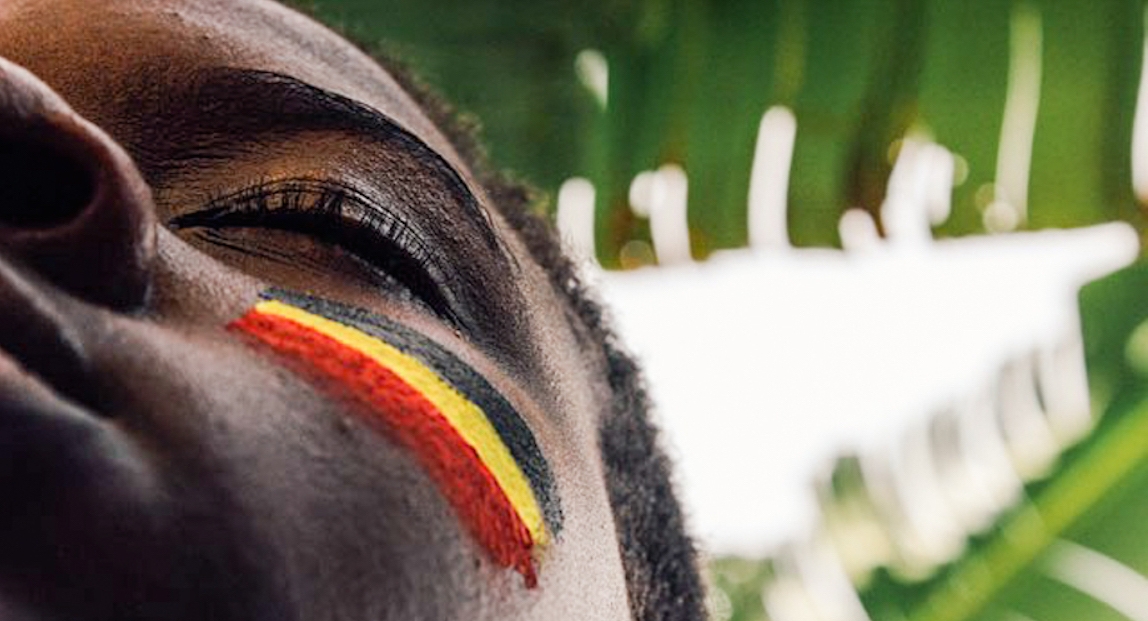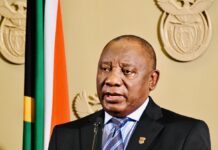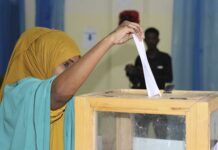Following the ousting of Robert Mugabe’s 37-year regime through a military coup by General Constantino Chiwenga, Yoweri Kaguta Museveni, leader of Uganda since 1986, has reshuffled some of the top most military leadership in the country. For many Ugandans like Ethel Nshakira, Mugabe’s fall has been welcomed with excitement in hopes that the nightmare of Museveni’s firm 31-year-grip on power will finally be toppled.
Imagine waking up and finding Kaguta and his cows gone. What a day that would be.
— eshabwe ting. (@soafricane) November 15, 2017
Having lived through Museveni’s regime all my life, and seen his election win after win and his brutal restrictions on opposition activities (with main opposition leader Kizza Besigye being arrested 43 times in a span of five years), it seems futile to hope in change for the future.
In January, the president announced the reshuffle of top military officers in the Uganda Peoples Defence Force (UPDF). Some of these included his son major general Muhoozi Kainerugaba, who was previously head of the elite Special Forces Command, being promoted to a presidential advisory role and the army chief general Edward Katumba Wamala, being moved to a civilian post as a junior minister in the Ministry of Works.
Museveni also recently announced a possible salary raise for soldiers and public servants on his Twitter account.
Now that the economic situation in Uganda is improving, the government will be able to look into raising of salaries of soldiers, public servants, health workers and teachers and also deal with institutional housing. pic.twitter.com/hvFlDiJ35I
— Yoweri K Museveni (@KagutaMuseveni) November 22, 2017
Although UPDF spokesperson brigadier Richard Karemire said that the changes in the army are “normal” and are part of the “very successful tours of duty” that officers have in different offices, there are speculations that structures are being put in place to prevent another “Chiwenga development” from occuring.
General Museveni, who is also the commander-in-chief of the armed forces, has strategically disbanded the old guard in both the ruling National Resistance Movement (NRM) party and the UPDF. Political analyst Andrew Mwenda said that the NRM has lost the last historical and political weight within party – former Prime Minister Amama Mbabazi. Mbabazi was sacked in 2014 because Museveni believed him to be a potential rival in the 2016 elections. Therefore there is no likelihood that events with the military leader Chiwenga in Zimbabwe and incoming leader Emmerson Mnangagwa would occur in Uganda.
Other precautions that the incumbent leader has taken include enhancing the payments within the army and for civil servants because of the “excellent performance of the economy.” Speaking at the pass out ceremony of UPDF officers in various courses, Museveni said the government would take on all the army’s housing needs.
Museveni has ruled Uganda since 1986 and has won all five elections since 1996. The 2011 elections were condemned by international observers such as the European Union and Commonwealth groups as short of being free and fair, and were entirely rejected by opposition parties who say that voting procedures were marred by voter intimidation and fraud.
His cabinet reshuffles are not uncommon, and usually occur to solidify his networks by rewarding close allies and dismissing potential opponents. For instance, in 2015 Museveni replaced Finance Minister Maria Kiwanuka with her deputy, Matia Kasaija, because she was viewed to be less loyal to the ruling NRM party.
Museveni will be 76 when the next elections come around in 2021 and there has been much debate surrounding amending the constitution’s 75-year age limit which would allow him to run for president. Democratic Party president Norbert Mao said that the opposition is against extending the age limit as it is the last barricade that the nation has against life presidency and “Museveni’s family’s despotic ambitions.”
However the overall dire state of the nation appears to be irking individuals who are actively engaging in conversation about how change can be brought about. New political actors like musician and member of parliament, Bobi Wine, are increasing the risk of popular demonstrations that could provoke an investigation into the the dysfunctional and corrupt system plaguing the country.
Although Mugabe’s formal resignation was released while I was taking a nap, I woke to videos of celebrations across my social media and it was hard not to share in the joy. There have been countless opportunities for a shift in power to take place in Uganda and for the same celebration to take place in the streets of Kampala, but I am hopeful that I will live to see this change. Also, I hope that I am not napping when it happens.
Ethel Nshakira is from Uganda, and is a third year journalism student at the UCKAR. When she doesn’t her eye behind a camera lens somewhere, she enjoys the occasional political write-up.









